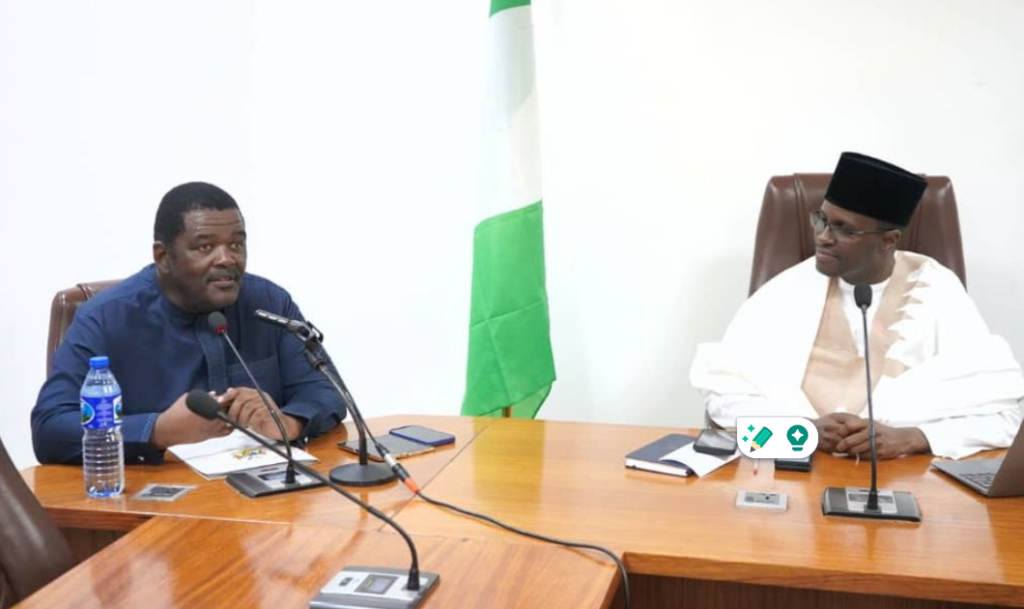The Government of Namibia has initiated a collaborative effort with Nigeria’s Independent Corrupt Practices and Other Related Offences Commission (ICPC) and the Economic and Financial Crimes Commission (EFCC) to combat corruption within its borders. This partnership reflects Namibia’s recognition of Nigeria’s prominent role in the fight against corruption on the African continent, with the aim of sharing valuable experiences and strategies that have proven effective in Nigeria. The initiative was communicated during a visit by Namibia’s Ambassador to Nigeria, Mr. Humphrey Geise, to the ICPC headquarters in Abuja. The focus of this engagement centers on creating training opportunities and exchanging expertise with personnel from the Namibian Anti-Corruption Commission (ACC), highlighting the importance of collaboration in the ongoing battle against corruption.
In his address, Ambassador Geise emphasized Nigeria’s leadership status in Africa’s anti-corruption landscape, contending that Nigeria possesses a wealth of knowledge and expertise that can greatly benefit other nations. The Ambassador pointed out that Namibia also operates an anti-corruption agency but is eager to learn from Nigeria’s experiences, particularly concerning the recovery of stolen assets. He expressed the belief that African countries should prioritize learning and exchanging knowledge with one another instead of seeking assistance from external sources outside the continent. The intent is to reinforce regional solidarity and to leverage the successes of Nigeria in its ongoing fight against corruption.
The ICPC Chairman, Dr. Musa Aliyu, SAN, acknowledged the significance of Ambassador Geise’s visit during the launch of the ICPC’s Strategic Action Plan for 2024-2028. He reiterated the notion that anti-corruption efforts in Africa cannot thrive in isolation, underlining the necessity for cooperation among national anti-corruption agencies. Aliyu recognized that corruption typically involves interconnected networks and stressed the importance of mutual collaboration to disrupt these illicit practices. This cooperative approach is expected to foster good governance and strengthen foreign direct investment within the African continent, presenting a cohesive front against corruption.
Further responding to the Ambassador’s proposals, Dr. Aliyu reiterated the ICPC’s willingness to assist the Namibian Anti-Corruption Commission. He also mentioned the establishment of the Anti-Corruption Academy, which has been designed to provide training programs aimed at enhancing the capacities of personnel involved in anti-corruption efforts. Aliyu’s invitation for Namibian representatives to participate and learn from the training initiatives highlights a commitment to reinforcing skills and knowledge that can combat corruption effectively. This potential exchange of ideas and tactical approaches is seen as a way to build a stronger, more unified anti-corruption campaign in Africa.
The growing consensus among African nations, as articulated in these discussions, is that collaboration, rather than competition, is key in the anti-corruption fight. By sharing experiences and learning from each other’s successes and failures, African nations can implement more effective strategies tailored to their unique situations. This view aligns with broader regional objectives that aim to address governance challenges and enhance public accountability across the continent. Namibia’s outreach to Nigeria marks a significant step in this direction, showcasing a proactive stance in tackling corruption and the recognition of the importance of inter-governmental partnerships in this vital battle.
As this partnership unfolds, it has the potential to reshape anti-corruption dynamics not only within Namibia but also across Africa. By leveraging the knowledge and successes of Nigeria’s anti-corruption agencies, Namibia hopes to not only strengthen its own mechanisms but also contribute to the broader African agenda of enhancing transparency and accountability. The outlook for this collaboration is optimistic, as both nations work together in pursuit of a corruption-free environment that supports economic stability and fosters growth throughout the continent.














